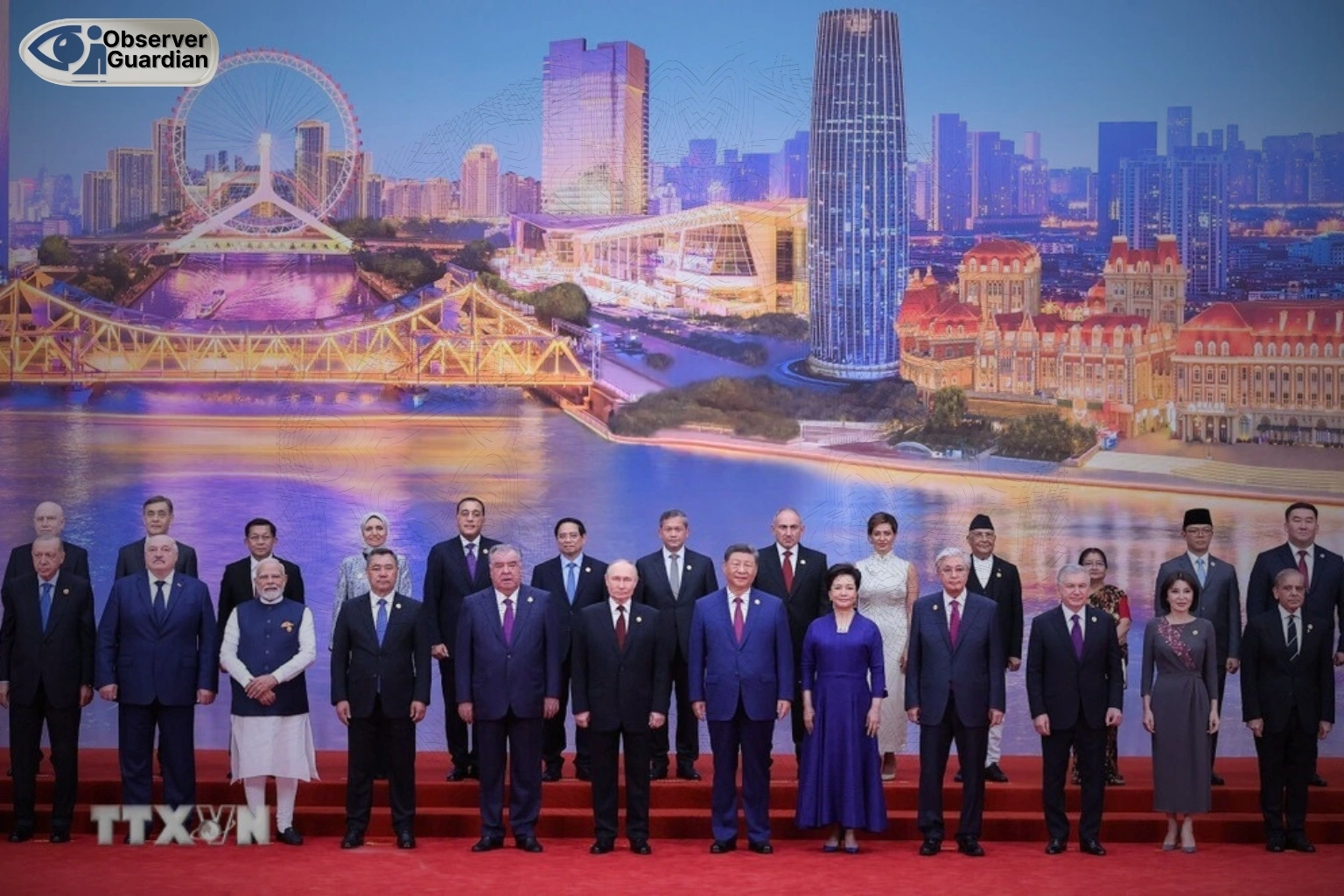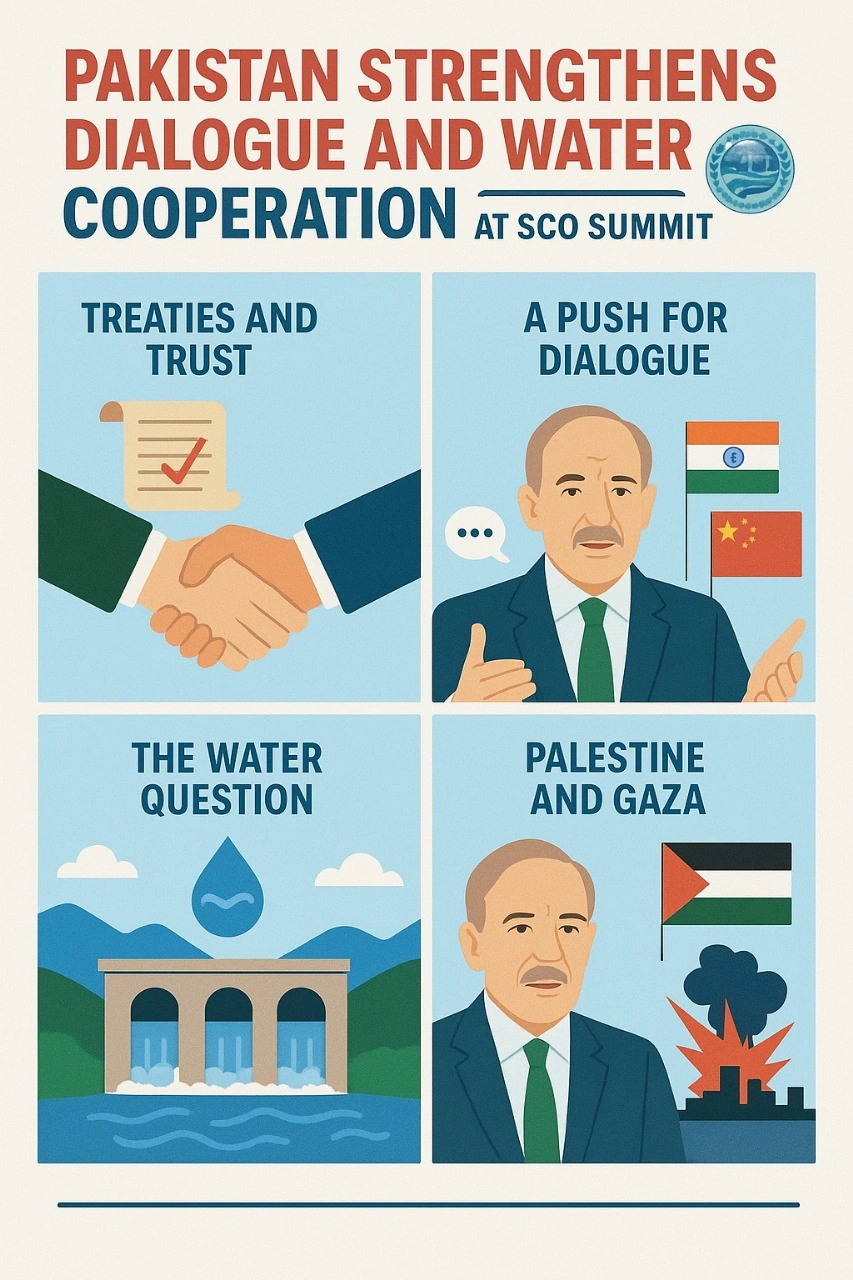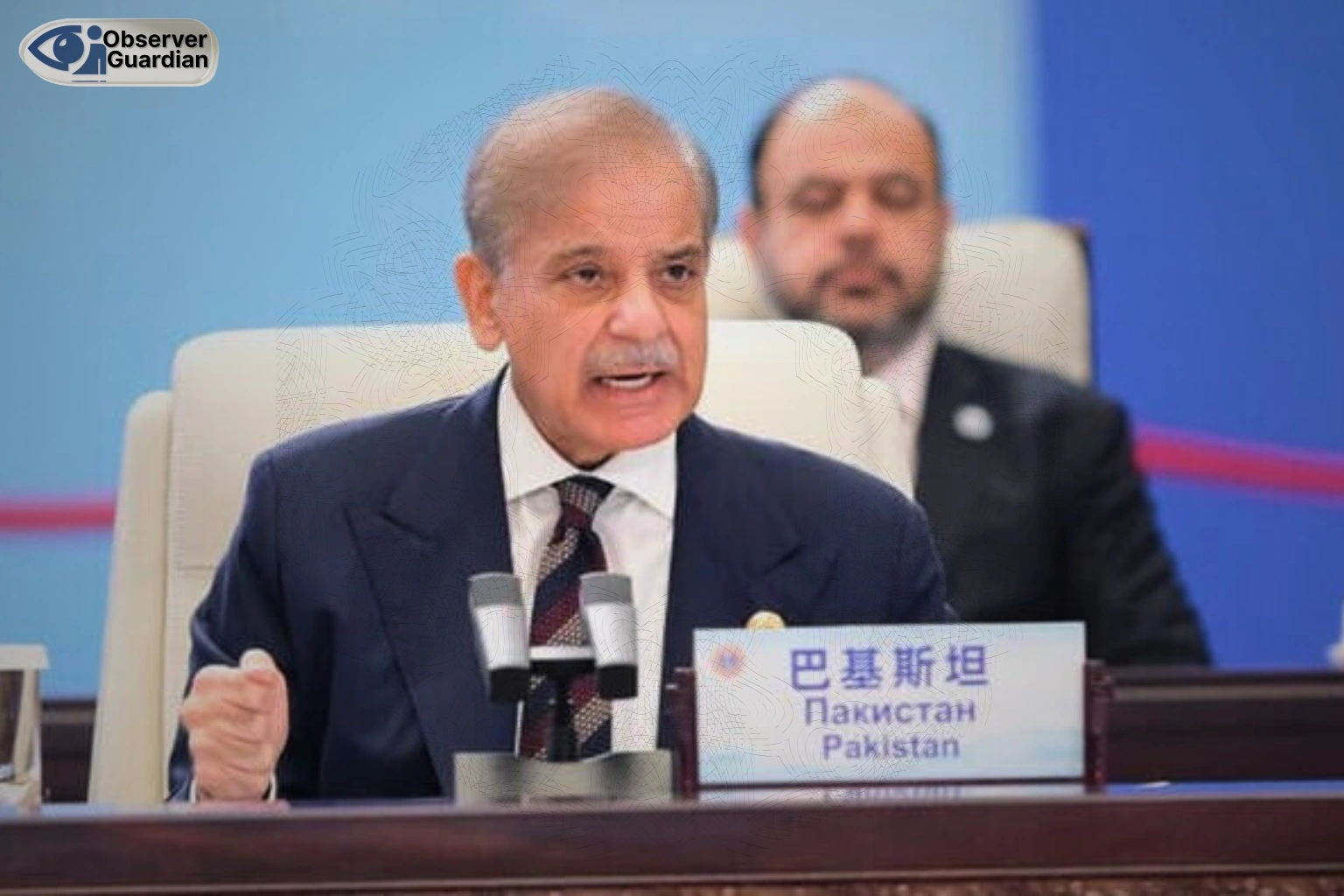At the Shanghai Cooperation Organization (SCO) summit in China, Prime Minister Shehbaz Sharif struck a tone that was both firm and conciliatory. He reminded fellow leaders that Pakistan respects international and bilateral treaties, and urged everyone else at the table to do the same.
His core message was clear that lasting peace in the region depends on dialogue, trust and cooperation, and not on force or unilateral decisions.
Treaties and Trust
First, Mr. Sharif opened his speech by reaffirming Pakistan’s respect for agreements it has signed, whether international or regional. This might sound routine, but in South Asia, where old disputes can flare up quickly, it matters. One of manifestation of it is the water sharing under the Indus Waters Treaty. It is one of the most sensitive issues of the region. Thus, by publicly vouching for Pakistan’s commitment, he was sending a signal that Pakistan will honor its words, but it expects others to uphold their end too.
A Push for Dialogue
Moving forward, it can be said that much of Mr. Sharif’s speech revolved around dialogue and diplomacy. He argued that SCO countries, many of whom have their own complicated disputes, should not let conflicts spiral because of mistrust or lack of communication between them. In his words, mutual dialogues minimize the escalating tensions. Moreover, SCO includes countries with major differences, from border disagreements to competing security interests. So, these challenges cannot be solved by isolation, but through diplomatic talks. Thus, Mr. Sharif’s saying was that the table leaders are sitting at, should be a place for conversation, and not posturing.
The Water Question
The most striking part of his speech was about water. He stressed that disputes over rivers and water rights are becoming a growing risk for the region. Besides, as a result of climate change, the shrinking glaciers and altering rainfall, water scarcity is already creating pressure in South Asia.
Mr. Sharif called for cooperation, legal frameworks, and structured dialogue to manage these resources fairly.

This was not just about Pakistan’s own needs, though water is a life and death issue there. But it was also a call for regional foresight.
If countries cannot agree on how to share something as basic as water, the fallout could be far worse than any trade or border dispute.
Hence, by raising it at the SCO, Mr. Sharif was nudging members towards a conversation that was often uncomfortable, but unavoidable.
Palestine and Gaza, Beyond the Region
In the meantime, Mr. Sharif also used his time at the summit to address conflicts outside South Asia. He strongly condemned Israeli strikes on Iran and the continued genocide in Gaza. Similarly, he reiterated Pakistan’s long standing support for Palestine and called the situation there as a moral and humanitarian crisis.
It is not unusual for Pakistani leaders to raise Palestine at international forums, it is a consistent part of their foreign policy. Still, by bringing it up at the SCO, Mr. Sharif was appealing to a broader sense of solidarity among member states.
Building Structures, Not Just Speeches
Moreover, one of his key proposals was to move from one off statement to permanent mechanisms for dialogue within the SCO. In other words, to not just talk when there is a crisis, but to build institutions that can mediate, manage disputes, and keep communication flowing even during tense times.

However, this kind of structural dialogue is ambitious, but it makes sense. The SCO has grown beyond its initial security focus. If it can handle thorny issues like water sharing or cross border tensions, it can become more than just another regional bloc.
What This Means for Pakistan
Clearly speaking, Mr. Sharif’s speech fits neatly into Pakistan’s broader diplomatic playbook. It is to present the country as a responsible actor which is open to cooperation, while quietly reminding others of its own concerns. For Islamabad, water and regional peace are not abstract, they are tied directly to security, economy, and survival.
Besides, the call for multilateralism also helps Pakistan to position itself as a constructive player at a time when global politics often reward unilateral muscle flexing. By leaning on dialogue and treaties, Mr. Sharif was trying to put Pakistan on the side of predictability and principle, which matters for its international image.
Where Things Go from Here
Furthermore, the SCO summit gave Mr. Sharif a platform to lay out these priorities regarding diplomatic talks. Now whether these dialogues take root or not depends on the other members of the SCO. Thus, dialogue sounds good in theory, but countries will only commit if they see clear benefits. Additionally, water cooperation, in particular, could be a real test. If SCO manages to push progress there, it could set an example for the rest of the world.
For now, Mr. Sharif’s speech was a reminder of what is at stake. Regional disputes, resource shortages, and external conflicts all threaten regional stability. Pakistan is signaling that it wants to be a part of the solution, but that requires collective buy in.
To conclude, Mr. Sharif’s words were not revolutionary, but they were steady and pointed. The goals like respecting treaties, talking to each other, sharing water fairly and standing against aggression are not easy to achieve, but they are the basics of a stable neighborhood. Hence, at a summit where big powers often dominate the headlines, Pakistan used its moment to push for the principles that are simple, but necessary for the region, if it wants to move forward.
⚠ Disclaimer
The views and opinions expressed in this article are exclusively those of the author and do not reflect the official stance, policies, or perspectives of the Platform.








